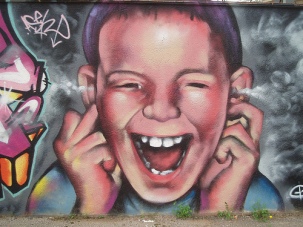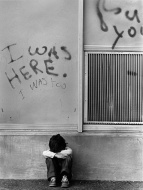People are said to be intellectually superior and the most complex of all the living things that walk here on earth. We know how to think, perceive, infer, solve problems, feel, understand, express, able to achieve experiences, broaden social bounds, and all the likes within the capacity of the different aspects installed in our being.
With all of these abilities at hand, we can shape the person we become. Choices are conscious drives and it serves as the determiner of our freedom. Either we get liberated or imprisoned by it. Experiences are either controlled or uncontrolled. We don’t always get to choose what we experience but we often have the choice on how to respond on what we experience.

When pain is experienced by an individual, defenses arise. In order to deal with conflicts and problems in life, Freud stated that the ego employs a range of defense mechanisms. Defense mechanisms operate at an unconscious level and help ward off unpleasant feelings (i.e. anxiety) or make good things feel better for the individual (Saul McLeod, 2009). On the other hand, George Vaillant further elaborated and classified defense mechanisms into 4 levels that emphasized its degree namely:
Level I – Pathological Defenses (psychotic denial, delusional projection)
Level II – Immature Defenses (fantasy, projection, passive aggression, acting out)
Level III – Neurotic Defenses (intellectualization, reaction formation, dissociation, displacement, repression)
Level IV – Mature Defenses (humour, sublimation, suppression, altruism, anticipation)
Negative experiences are inevitable. Anxiety is an essence of life. Mental health is determined not on the absence of anxiety but instead on how one could keep him/herself intact even with its presence. It is with the way on how we respond that we can say that anxiety has been a catapult for life or a quick sand to nothingness.

Sitting down with people whether in counselling/therapy sessions, psychological assessments, or even as casual as a friend confides his/her thoughts and feelings, if there is a term such as “clinical eye” which refers to an inference coming from one’s behaviour on how a practitioner in the field of psychology could tell that an individual is disturbed even by seeing him/her the first time, then, I can adopt this and say that it is with the “clinical ear” that I hear whether the words that comes out of a person’s mouth is from the authentic being that they are or it is the defense mechanism that starts talking. Some people become the pain that they have experienced. Others are like walking Great Wall of China because of the long and thick walls they have built to protect the vulnerable inside of them. Talking to people like this brings me to an imaginary vision walking inside these walls, opening doors after doors, only to find a child crying in the corner.
I have thought to myself, is it really pre-disposed in this individual’s personality to be strong or is it the walls of defenses that got too thick? The thicker the walls of defenses the more fragile is being protected inside. Well, personality and the choice of defense mechanism may be correlated.
Other than relevant experiences, defense mechanisms can also shape who we are now. It is basically not the pain that make us or break us but rather the defenses we put up once it was experienced because pain is humanity’s baseline for personal progress or regression and not all mechanisms are mature. It may be true that these mechanisms are unconscious in nature that’s why the need to recognize how we handle things could make us discover a lost self hidden behind thick walls when a certain defense mechanism is overly utilized. When these mechanisms are aroused in the conscious level then, we get to put our feet back firm on the ground of reality in order to make choices and eliminate unconscious immature defenses to know how to adopt better ways to surmount a conflict.

The ability to break walls of defenses when needed is therapeutic. To be transparent with ones hurt, pain, and vulnerability takes double the strength than by persistently putting up walls brick by brick and yet nothing gets resolved other than just continues barrier construction that moves one’s self away from authentic living. To have someone comfort and nurture the vulnerable being within to mature, preserves the core personality of an individual freed from the perplexity of pain adopting appropriate defenses for personal growth.
